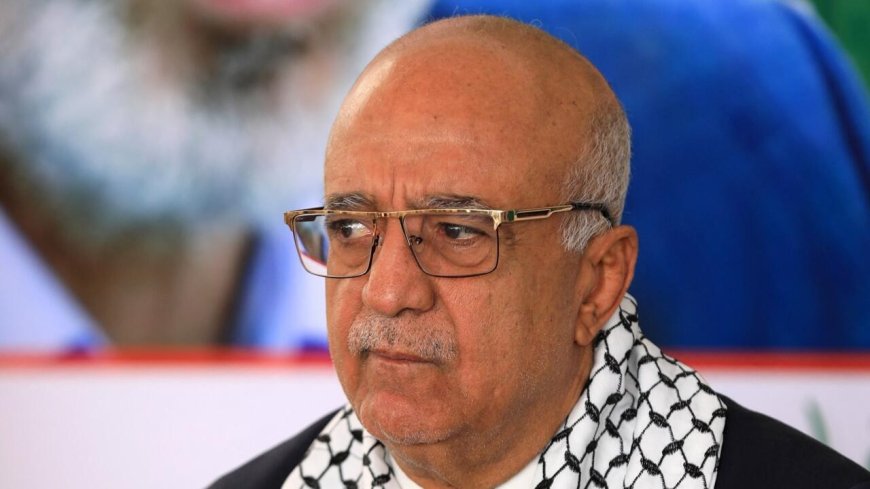Israeli Strike in Sanaa Kills Houthi Prime Minister — Red Sea Tensions Surge as Gaza Famine Deepens
Israel’s strike in Sanaa killed Yemen’s Houthi prime minister, heightening fears of retaliatory drone attacks on Red Sea shipping lanes amid Gaza famine warnings and UN alerts of starvation.

A Landmark Assassination in Yemen’s Capital
On August 28, 2025, Ahmed Ghaleb al-Rahawi, prime minister of Yemen’s Houthi-run government in Sanaa, was killed along with several ministers in a targeted Israeli airstrike, confirmed by the group on August 30. The Houthis said the strike hit while officials were gathered in a workshop, prompting cries of revenge from the group’s leadership. Israel characterized the operation as a precise, intelligence-driven strike on senior Houthi figures, including their chief of staff and possible defence minister Reuters+1Al Jazeera.
Ahmad al-Rahawi had served as a largely symbolic figurehead since August 2024. His deputy, Muhammad Ahmed Miftah, was swiftly appointed as acting prime minister following the strike Wikipedia+1.
Regional Context: An Escalating Red Sea Conflict
This strike marks the most severe blow against top Houthi leadership since Israel widened its military campaign amid the Gaza conflict. Since October 2023, the Houthis, aligned with Iran, have launched missile and drone attacks on Israeli territory and vessels in the Red Sea and Gulf of Aden, positioning themselves as defenders of Palestinians. Israel has intensified retaliatory strikes on Houthi-controlled regions, including ports and airports Wikipedia+2Wikipedia+2Reuters.
A comparison of Houthi reactions to previous strikes sheds light on evolving response patterns:
| Date | Trigger Event | Houthi Response |
|---|---|---|
| Dec 2024 | Airstrikes on Sanaa airport and ports | Condemned, limited retaliatory statements Wikipedia+1 |
| May 2025 | Israel destroyed Sanaa airport | Escalated missile launches; strengthened maritime aggression Wikipedia |
| Aug 2025 | Strike kills Houthi PM & ministers | Formal vow of vengeance; likely surge in drone/missile activity Reuters+1Al Jazeera |
Gaza's Plight: Famine Deepens as Conflict Rages
Simultaneously, a humanitarian catastrophe grips Gaza. UN-supported agencies, including the IPC (Integrated Food Security Phase Classification), have declared famine conditions—estimated to affect over half a million Palestinians—as “man-made” and deliberately engineered through siege and bombardment Al Jazeera+2Al Jazeera+2Wikipedia.
Aid groups and UN officials warn that even temporary humanitarian pauses are being withdrawn, undermining relief efforts further. Gaza City has been officially designated a “combat zone”, limiting safe passage for aid and escalating civilian risk of starvation and mass displacement The Guardian. The dual crises—Houthi-Israeli hostilities and Gaza starvation—are becoming tragically intertwined in the region’s turbulence.
Humanitarian Response Under Attack
Tensions escalated further when, shortly after the strike, Houthi forces raided UN World Food Programme and UNICEF offices in Sanaa, detaining at least 11 staff members—part of a broader crackdown following the airstrike New York PostReuters. The report highlighted serious concerns about the safety of humanitarian workers and the disruption of vital aid services.
Why This Event Matters
-
Strategic Blow – For the first time, Israel has eliminated a senior Houthi official, potentially reshaping the group’s command structure and strategy in the Red Sea.
-
Retaliatory Escalation Likely – Analysts warn that Houthi missile and drone strikes on regional shipping lanes may intensify, raising global maritime security concerns.
-
Humanitarian Catastrophe Embedded – Gaza’s famine and Israel’s combat-zone designation magnify the stakes; conflict in Yemen compounds regional instability.
-
Erosion of Aid Mechanisms – With UN offices targeted in Yemen, the channels for humanitarian response—already limited—are further compromised.
Conclusion
Israel's targeted killing of the Houthi prime minister in Sanaa is a pivotal escalation in a widening regional conflict. It carries grave implications for maritime security, humanitarian relief, and regional diplomacy. As Gaza sinks deeper into famine, Yemen edges closer to further destabilisation.
International attention must now balance geopolitical analysis with urgent advocacy for humanitarian corridors. The vital question remains: can diplomacy emerge in time to prevent further tragedy in both Gaza and beyond?
What's Your Reaction?
 Like
0
Like
0
 Dislike
0
Dislike
0
 Love
0
Love
0
 Funny
0
Funny
0
 Angry
0
Angry
0
 Sad
0
Sad
0
 Wow
0
Wow
0









































































